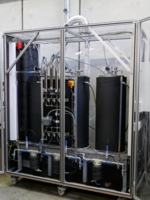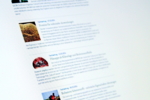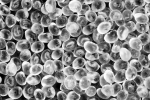-
Project BW2Pro - 29/08/2022
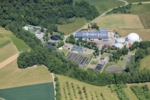
In 2020, Germany’s population collected over 5 million tonnes of biowaste. Most of this was composted, and some was fermented into biogas. Scientists in Baden-Württemberg think there's room for more. Within the project ‘Biowaste to Products’ (BW2Pro) they want to transform biowaste into new products in a biorefinery. The idea is to produce biodegradable plant pots, mulch material, fertilisers, enzymes and biobased plastics in addition to…
https://www.biooekonomie-bw.de/en/articles/news/biowaste-products-biorefinery-transforms-biowaste-new-products
-
-
Specialized in Sustainability - 30/09/2021
The research project RUN (Rural Urban Nutrient Partnership) explores how waste might be used more efficiently as a resource. In this project, Veronika Fendel investigates how recyclable materials from biowaste and domestic wastewater can be fed back into the material cycle in the best possible way.
https://www.biooekonomie-bw.de/en/articles/pm/circular-economy-future
-
-
-
Press release - 26/01/2021
The University of Warmia and Mazury in Olsztyn, Polish partner of the BalticBiomass4Value project, published a report which maps biomass value chains for improved sustainable energy use in the Baltic Sea Region countries. The research focuses on the 9 Baltic Sea Region (BSR) countries: Denmark, Germany, Estonia, Finland, Latvia, Lithuania, Poland, Sweden, and Norway.
https://www.biooekonomie-bw.de/en/articles/pm/report-mapping-biomass-value-chains-improved-sustainable-energy-use-baltic-sea-region-countries-published
-
-
Dossier - 28/04/2020
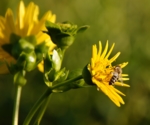
Biomass from forestry and agriculture along with residues from industry and households can contribute to our energy and raw material shift. Sustainable, regenerative biomass-based energy can become part of the energy mix of the future within the framework of a bioeconomy.
https://www.biooekonomie-bw.de/en/articles/news/Sustainable-bioenergy
-
Biogas and wood as components of the energy transition - 10/02/2020
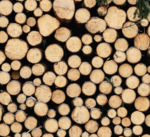
Decentralised, controllable and stable - renewable energy is an important component in the transition to a bioeconomy without fossil fuels. BIOPRO spoke to PD Dr. Andreas Lemmer from the State Institute of Agricultural Engineering and Bioenergy at the University of Hohenheim and Prof. Dr. Stefan Pelz, scientific director of the Institute for Applied Research and professorat the University of Applied Forest Sciences Rottenburg.
https://www.biooekonomie-bw.de/en/articles/news/New-perspectives-for-bioenergy
-
-
-
-
-
-
-
-
-
Website address: https://www.biooekonomie-bw.de/en/search

